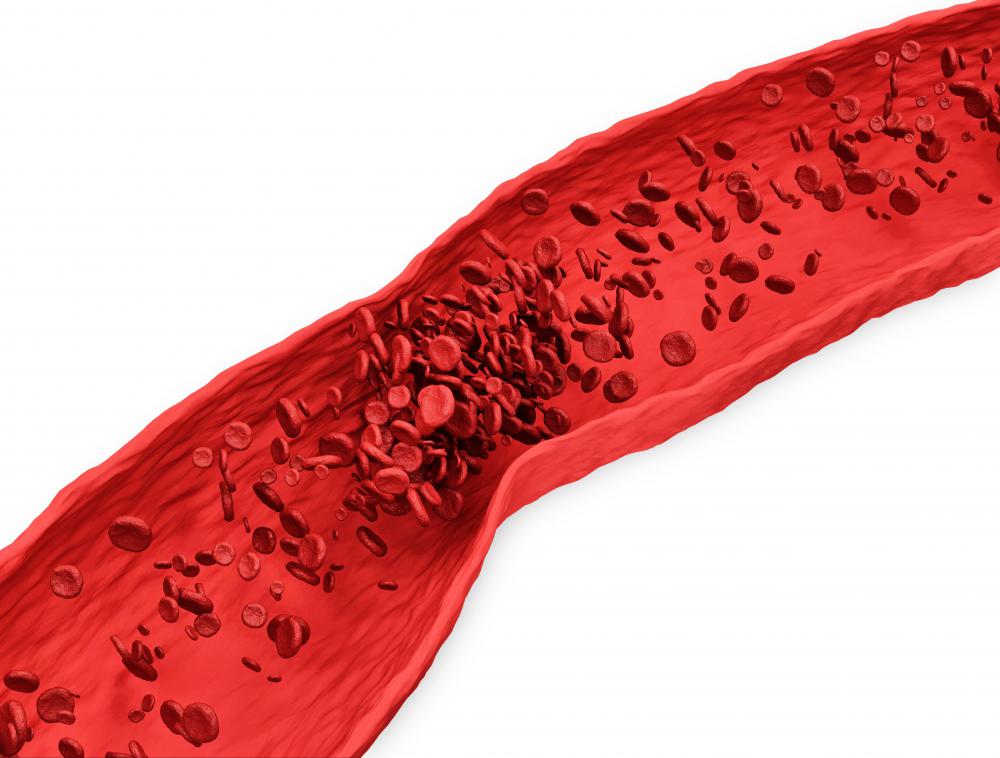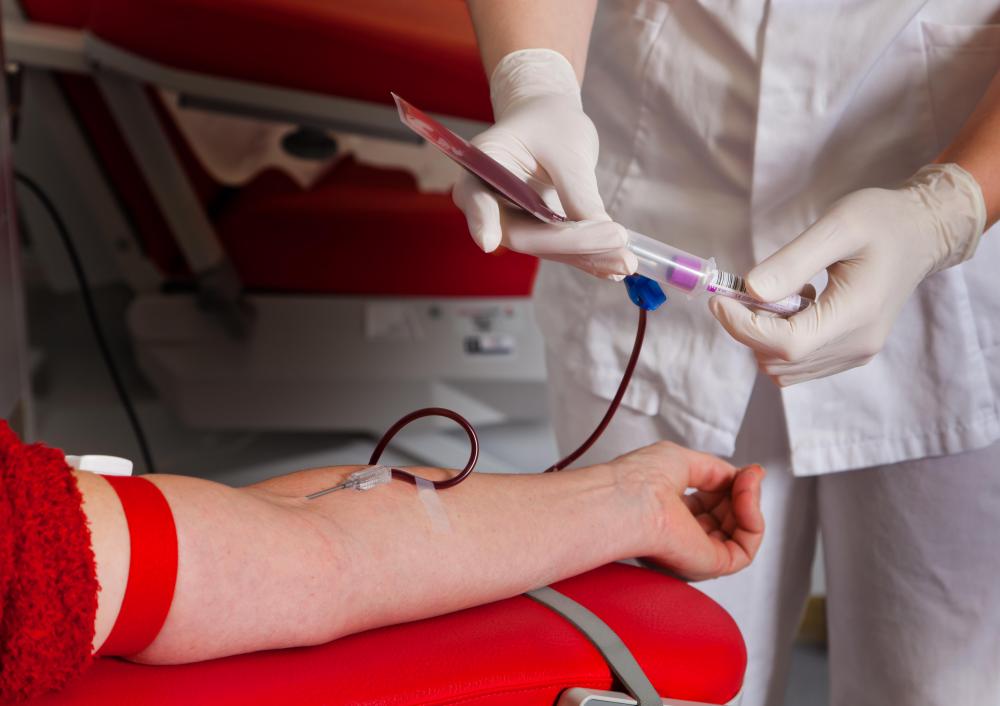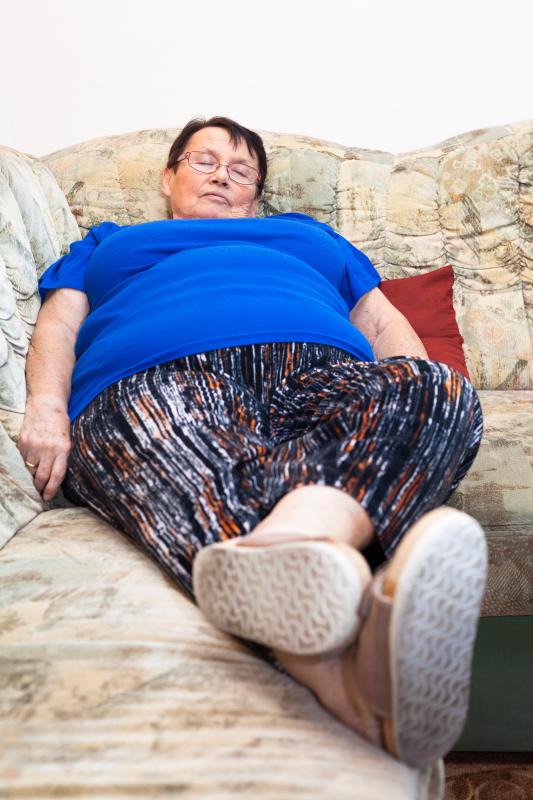At WiseGEEK, we're committed to delivering accurate, trustworthy information. Our expert-authored content is rigorously fact-checked and sourced from credible authorities. Discover how we uphold the highest standards in providing you with reliable knowledge.
What Are the Different Causes of Blood Clotting?
Blood clotting is a normal bodily function. It is how the body responds to damaged arteries and veins or broken blood vessels. Blood cells and fibrin strands seek out the leak and pile up around it, giving the damage time to heal. While normal clotting is part of the healing process, abnormal development of clots are not and can be caused by trauma, obesity, genetics, and prolonged use of contraceptives.
Coagulation, which is the term used to describe blood clotting, is an important function. A lack in or delay of coagulation is life threatening, particularly from the increased risk of bleeding to death as a result of cuts or major injuries. Hypercoagulation can also be life threatening when too many clots form or travel to other locations.
Excessive coagulation occurs when the fibrin strands, platelets, and blood cells form more easily than normal or do not break up properly. When this happens, blood flow is impeded. If the clots remain, damage to organs can occur.

The two types of classifications to describe the abnormal formation of blood clots are genetic or acquired. Genetic causes are rarer than the acquired ones. Acquired clots rely on triggers to cause blood clotting. Any condition that causes damage to blood vessels, such as atherosclerosis, can lead to blood clot formation.
Genetic causes for coagulation often result in a slow dissolution of clots or an abnormally high occurrence of clotting. Many genetic defects cause problems with the proteins that are part of the clotting process. There can also be genetic abnormalities in the breakdown of existing clots.
Two disorders are more common. Thrombophilia and hemophilia are more two conditions that cause problems with coagulation. Despite confusion about these conditions, they are quite different.

Thrombophilia can be acquired or genetic, and causes excessive coagulation. Clots form and can cause a blockage, but can also break loose and travel through the bloodstream. The traveling blood clots will frequently become lodged in smaller blood vessels. If the clots travel to major organs, damage can occur.
Hemophilia is basically the opposite of thrombophilia. This condition causes excessive bleeding. Blood clotting is either non-existent or extremely delayed. Even a small cut can be dangerous. People with hemophilia are at a higher risk of developing internal bleeding. The lack of clotting abilities allows blood from even the smallest of cuts to bleed profusely.
AS FEATURED ON:
AS FEATURED ON:
















Discussion Comments
@Scrbblchick -- Two trips to the vampires. Sounds like fun. It's worth mentioning that, while taking that aspirin may be a good idea if you're having blood drawn, you will probably have to stop it if you're having any kind of surgery.
I had outpatient surgery a couple of years ago. I've been on a baby aspirin regimen for years, but my doctor told me to stop about a week before the surgery so they wouldn't have any bleeding problems. I did and everything was all right. My blood clotted fine and I was OK.
I think the whole problem is that in healthy people, the natural state is for the blood to stay inside the body, and the body does everything possible to make that happen.
I had a bad time at the lab the other day. I was having bloodwork done, for which four vials of blood were required. I'm usually a pretty easy stick, and had drunk water to plump up my veins, but the tech had a terrible time sticking me, and the blood kept clotting. She was able to get two vials. I had to go back after the weekend and get stuck again.
Well, over the weekend, I took one aspirin a day and made sure I stayed hydrated. I drank a bottle of water between my house and the doctor's office. Something worked because she was able to hit the vein on the first try and filled up the two vials lickety-split! Go figure.
Post your comments